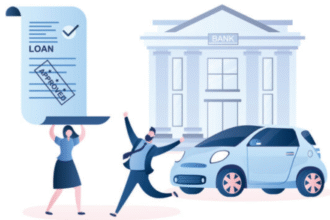A debt consolidation loan may help reduce your monthly debts and raise your credit scores, but only if you commit to paying down your debt.
If you have high-interest credit card balances on various accounts, just making the required monthly payments can be difficult. Sometimes, it becomes tough just to get the things you need, let alone the items you want, and saving money is out of the question.
This can be stressful. If this is your case, debt consolidation could be the best resolution. However, examine how a debt consolidation loan will affect your credit scores before you commit.
Why Consolidate Your Debts?
Merging your debts can save you money. For instance, if you have credit cards that charge up to 20% or more in interest fees, consolidating the balances into a single credit card or a personal loan will save you money, but only if they have a lower interest rate. The new loan may also make repaying the notes simpler.
When you have to manage several accounts, you’re likely to miss a payment. If you miss a payment or if you’re late making payments, it can hurt your credit scores. With this in mind, consider merging your balances with a debt consolidation loan so that you’ll have one monthly payment.
When you combine your debts, you either help or damage your credit. Here are reasons that will decrease your credit scores when consolidating debt:
- The average age of credit — When you make payments on time on an aging account, your credit scores improve.
- New credit applications — The first blow to your credit scores can happen even before you consolidate. When you apply for a personal loan or balance transfer credit card, lenders will make a hard inquiry on your credit. This always lowers your scores, but only by a few points. If you have many inquiries, it could add up.
- New credit account — Opening a new credit account, lowers your scores, although it’s only temporary. When taking out a new loan, bankers look at new credit as an extra risk, so your credit scores take a dip.
But the consequences aren’t all bad. Here are some pros to debt consolidation:
- Lower credit utilization ratio — The credit ratio is a gauge of how much of your available credit you’re using. It may shrink when you open a debt consolidation loan account because it increases the amount of credit you have.
- Improved payment history — It happens over time, but when you make on-time payments on your new loan, your credit scores increase. Your payment history is a huge portion of your credit scores, so pay on time.
Consolidating your debt so that you have a low-interest home equity loan, balance transfer credit card, or personal loans may sting your credit scores in the beginning, and has been assumed as the best debt relief program. Make on-time payments and pay the debt consolidation loan off as soon as you can. If you establish a good repayment history, your scores should recover and even improve if there are no derogatory remarks.
Ways to Consolidate Debt
There are several ways to address debt relief, so don’t think they are all the same. Each one is for a specific situation. Figure out which one suits your situation and make the best decision based on your needs.
Here are a few ways you can consolidate your debt:
Personal Loans
Personal loans are used to consolidate credit card debt. They are another way of combining multiple balances so you have one monthly payment. These loans don’t require collateral and are available through your credit union, finance company, or banks.
Credit Card Balance Transfers
Shifting multiple credit card balances over to a single card that has a 0% interest rate is not the same as a debt consolidation loan, but it’s close. It’s something you can do yourself, however. You must have at least a credit score of 680 or more to apply.
Carefully applied and serviced responsibly, debt consolidation loans can actually help your credit score.















